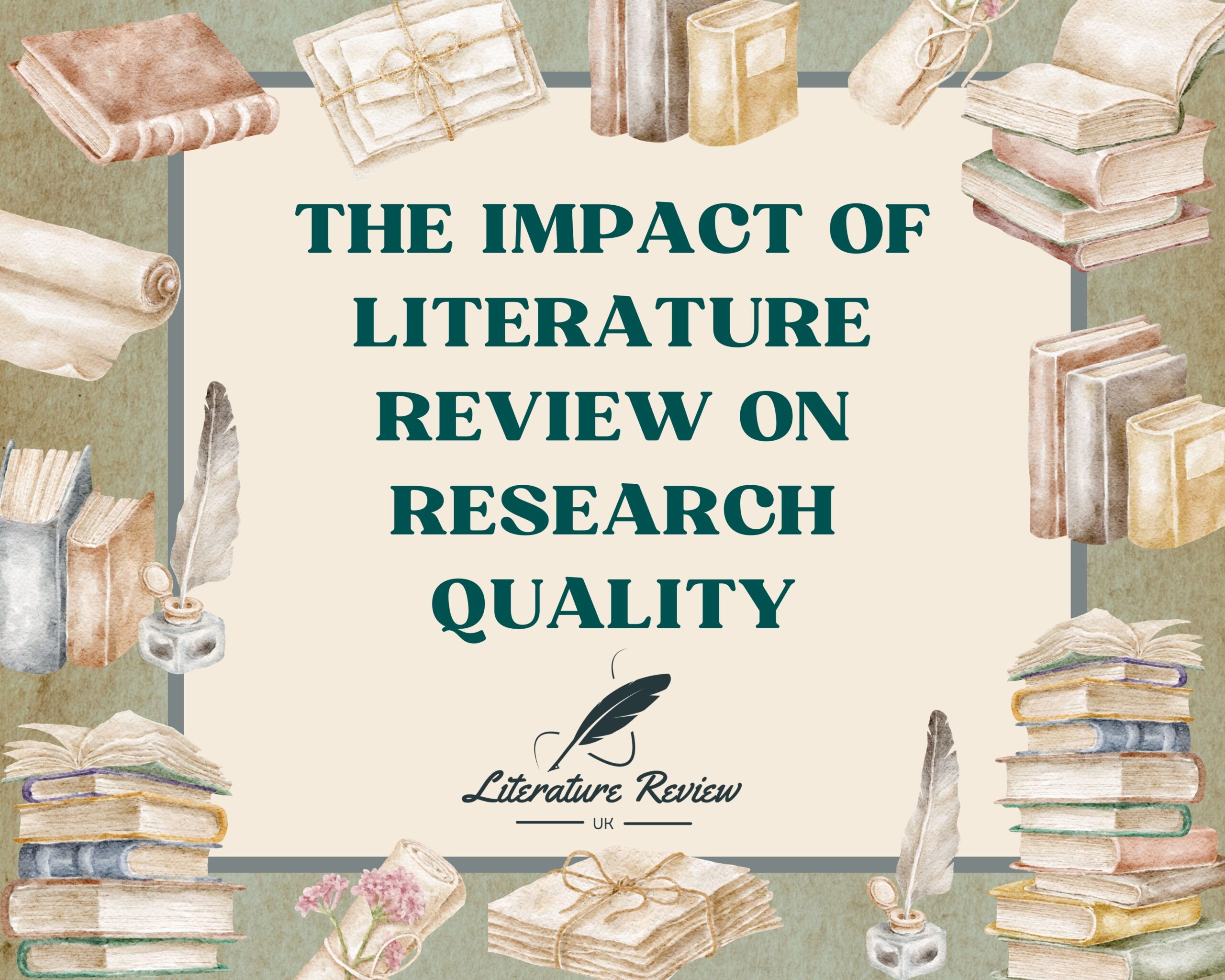
In the world of research, a literature review is an essential component of any study. It is a critical analysis and evaluation of existing research that helps establish the background, significance, and relevance of a study. In simple terms, a literature review is a thorough and systematic examination of all the published literature related to a particular topic. The quality of a literature review can make or break a research study. A well-conducted literature review can provide a solid foundation for the research, while a poorly conducted one can lead to inaccurate findings and flawed conclusions. In this blog, we will explore the impact of literature review on research quality and why it is crucial to conduct a thorough and comprehensive review before embarking on any research study. So, whether you’re a student, researcher, or academic, read on to discover the importance of literature review in research.
The Importance of Literature Review in Research
When it comes to research, conducting a literature review is key. Literature reviews are a critical part of any research project, and they help researchers to stay informed of the latest developments in their field. This is important because it ensures that the research being carried out is based on the latest evidence and that researchers aren’t relying on outdated or invalid data.
A literature review also helps to identify gaps in existing research and highlight areas where further investigation is needed. This is not only beneficial for the researcher’s own work, but can also provide insight into potential opportunities for future research projects.
Conducting a literature review also provides an opportunity for researchers to engage with other authors in their field. Reading through articles and reports written by other authors will allow researchers to gain a better understanding of their field and share ideas with colleagues, which can result in more successful research outcomes in the long run.
Enhancing Research Quality through Comprehensive Literature Reviews
A comprehensive literature review helps to ensure the quality of a research study by providing a thorough background of relevant theories, concepts and evidence. A thorough literature review helps the researcher to uncover new ideas, identify gaps in existing knowledge and develop hypotheses for further research. It also provides a unique opportunity to identify potential sources of bias in data collection and analysis, as well as to understand the perspective of other researchers.
Not only does a comprehensive literature review provide valuable insight into the research process, it also strengthens the credibility of the results. By relying on existing studies and facts, researchers can build upon existing knowledge to create new research questions or interpret previously established results in a different light. This allows for more stringent testing methods that provide even more reliable results.
Furthermore, by comparing different sources of information, researchers can gain an understanding of how their own studies fit into the larger body of research on their topic. Through this comparison, they can make sure their work is presented in its appropriate context and is positioned correctly with relation to other studies in their field.
Identifying Gaps and Building on Existing Knowledge
When you conduct a literature review, you are able to identify any gaps in existing knowledge and build on that knowledge. By reading through the data collected by other researchers, you can gain insight into the trends in research, identify areas where more research may be necessary, and even identify new approaches that can potentially improve the quality of your own research.
For example, if you are conducting a research project on a particular topic and find that there is a lack of information or inconclusive results in certain areas, you can use the literature review to determine what additional research needs to be done. Additionally, through reading other authors’ work, it is possible to gain valuable insight into how similar studies have been conducted or different perspectives they bring to a given topic.
Additionally, by reading related works from authors from different fields or disciplines, it is possible to come up with new hypotheses or approaches for conducting the research. This will further enhance the quality of your own work and ensure that all relevant angles are taken into consideration.
Avoiding Redundancy and Preventing Research Errors
When you’re conducting research, it’s important to avoid redundancy and errors. This is where a literature review can help. By studying and reviewing existing studies, you can identify gaps in knowledge that could be filled by your research, as well as any mistakes or inconsistencies in the study itself.
Additionally, literature reviews can help you to critically analyse studies that may have an impact on your own study. This can ensure that your research is built upon the best available evidence and avoids making conclusions based on flawed data or outdated information.
Moreover, literature reviews are useful for spotting trends and under-researched areas within the field of study, so that you can focus your efforts on filling those gaps in knowledge. They also provide valuable insight into the research process itself – enabling more effective planning for your own project and avoiding potential pitfalls.
Leveraging Literature Reviews for Robust Methodology and Valid Conclusions
Having an extensive understanding of the topic at hand is vital for formulating research questions and design methods that can accurately answer them. A literature review can provide a researcher with a better sense of the current knowledge base for any given topic, making it easier to identify gaps in current research. This is especially true when conducting cross-disciplinary research, which relies heavily on previous work from multiple fields.
The literature review process itself can also be used to refine and develop the research methodology that is being proposed. Through close analysis of sources, researchers can identify potential flaws in a given approach and adjust their plans accordingly. This helps to ensure that the proposed methods are robust and properly suited to the task at hand.
Finally, comprehensive literature reviews enable researchers to draw valid conclusions that are firmly rooted in existing evidence. By exploring all of the sources surrounding a given subject matter, researchers can gain valuable insight into its complexities which will allow them to make more confident claims about its implications. The sheer amount of existing data available means that properly conducted literature reviews have an invaluable role to play in any research project.




